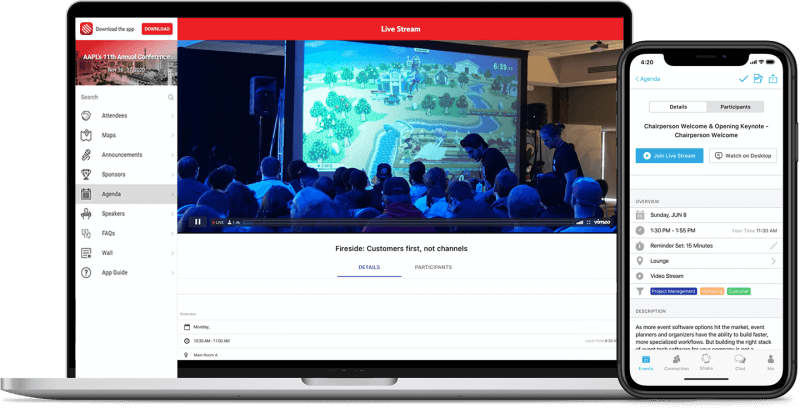By taking some tips from the retail sales playbook, private lenders can maintain mutually beneficial relationships with their investors. Here’s what you need to know.
Do you know it’s illegal to advise anyone to invest their money into something if they are not a financial investment adviser?
The Securities and Exchange Commission (SEC) defines an investment adviser as “any person or firm that for compensation is engaged in the business of providing advice to others or issuing reports or analyses regarding securities.” The three main points in this statement are (1) “compensation” (the receipt of economic benefit), (2) “business” (the adviser is also the recipient of compensation), and (3) “securities” (explicitly pertaining to stocks, bonds, mutual funds, limited partnerships, and commodity pools.) An investment adviser typically holds a Series 7 or 65 or some other type of licensure.
If you work with passive investors to fund real estate deals, these legalities make your job slightly more complicated. You must convince investors of the worth of the capital you are trying to raise without outright urging them to invest.
Though the script may look different, investor relations are essentially sales. The tactics salespeople use to help retail customers decide to purchase a product are the same as those a private lender sourcing capital would use. The end result for both a retail sales/customer relationship and a passive investor/private lender relationship is the same: A problem is being solved. Private lenders are solving the problem of helping passive investors find solid places to invest their money to accrue returns, making their money work harder for them.
Although private lenders cannot use language indicating something is a solid investment, there are other ways to position your investment opportunity to build out an unspoken sales pitch. There are ways to speak to the benefits of the investment, or the benefits of the underlying security, development team, etc. Knowing the developer experience, valuation summary, and market details and relaying that information to the passive investor helps them draw their own conclusions about the security within the deal without you having to say it. By understanding the terms of the loan, the passive investor is doing their due diligence.
Similarities Between Sales Relationships and Private Lender Relationships
Here are some of the key similarities between a sales/customer relationship and a passive investor/private lender relationship:
- Both relationships are transactional. Private lenders seek funding for their loans, and investors provide the necessary capital. Similarly, a salesperson aims to sell a product or service, and the customer purchases it. Though the actual sales tactics are different, both exchanges have the same beginning, middle, and end.
- The desired result of the exchange is mutually beneficial. Both parties involved seek to benefit from the relationship. The private lender benefits by receiving the necessary funds to originate loans, which allows them to earn interest and fees on the capital. The passive investors benefit by gaining a return on their investment through the interest payments the borrowers make. For retail customers, the return is finding a product or service that satisfies their needs.
- Both relationships require trust to succeed. Passive investors who fund real estate loans need to trust the private lender’s expertise in underwriting and managing loans, ensuring their investment is secure and will generate the expected returns.
Similarly, retail customers rely on the salesperson’s knowledge and expertise to make informed purchasing decisions, trusting the product or service will meet their expectations. Given the limitations in persuasive language allowed by the SEC, private lenders have to use solid numbers and information about their loans to convince passive investors of their worth. To establish trust, that information must be accurate. - The importance of communication cannot be understated. Successful private lenders and salespeople understand the importance of effective communication and relationship building. Private lenders need to maintain open lines of communication with their investors, providing regular updates on loan performance, development progress, market conditions, and other relevant information.Similarly, salespeople aim to build rapport with their customers, understanding their needs and preferences to provide personalized recommendations and foster long-term loyalty. The passive investor and private lender relationship is typically more hands-on than the traditional sales/customer relationship, but the desired end result is the same.
- Responsiveness and customer service must be prioritized to maintain loyalty. Private lenders should promptly address investor inquiries, provide timely documentation, and offer transparency in their operations. Likewise, salespeople must be attentive to customer inquiries, offer product knowledge, and ensure a smooth purchasing experience. In the age of the internet and instant communication across multiple virtual and in-person channels, there is no reason not to have an open line of communication with your passive investors to help them feel confident about their investments.
As an example of these customer service practices in active use today, consider real estate investing platforms that connect passive investors to active ones to fund loans for people who are building and flipping homes. The passive investors who use the platform have autonomy to browse deals, make decisions, and invest their money without any broker action.Though these investors have autonomy to handle the entire process themselves, the company behind the platform often has a team of people acting as a sales department to offer customer service and brand awareness for the investors. The team has many of the same duties as a traditional customer-focused sales team: They build brand trust, establish the communication needed to make investors feel at ease about their money, and handle customer service issues that arise during the investor’s journey from investment to return.
Remember, Communication Is Key
As a private lender in the age of technology, there is no excuse not to consistently communicate with your passive investors. The deals you present must be clearly defined and positioned to show the investor how attractive they are as a potential opportunity to create returns. Your job as a private lender is to ensure the benefits are effectively communicated.
You can manage your communication with technology. Set up regular touchpoints throughout the investment process to ensure your investors receive all the information they need to feel secure about their money. You can use email, texts, phone calls, etc., to help create the trust necessary to continue a business partnership with that investor and establish loyalty for any investment products you might offer.
Private lenders may not be traditional salespeople in a retail customer sense, but they perform many of the same functions as a sales team when it comes to working with the private investors who fund their real estate deals. In both circumstances, parties rely on each other to achieve their respective goals: The private lender needs the investors’ capital to fund loans, and investors rely on the lender’s expertise to generate returns on their investment. By taking some tips from the sales playbook, private lenders can maintain mutually beneficial relationships with their passive investors on a much more personal level.












Leave A Comment